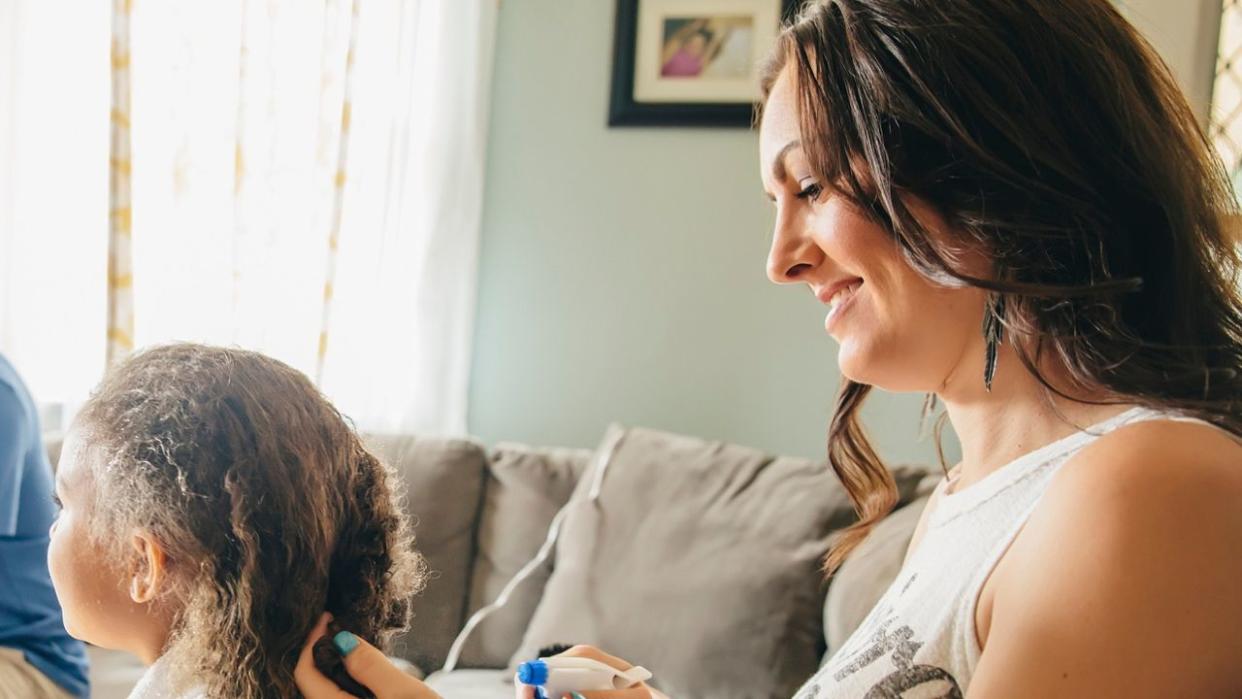An Illinois Salon Is Teaching Transracial Adoptive Parents How To Care For Black Hair

A non-profit salon in Oak Park, Illinois is teaching transracial adoptive parents how to take care of Black hair. Tamekia Swint has helped dozens of families since launching Styles 4 Kidz in 2011, providing services such as cornrows, braids and twists. Swint’s salon also provides one-on-one training sessions, online courses and workshops.
Swint opened her saloon after meeting a woman named Mary, who is a white mother with two adoptive Black daughters.
“A Black mom in my local church knew I liked doing hair and she was like, ‘My friend Mary needs your help,'” Swint told TODAY.com.
Swint said she was in tears after meeting Mary and her children as it was devastating for her to see the girls with dry and entangled hair.
“I didn’t want to cry because I didn’t want Mary to feel bad, but it was awful,” Swint said. “At that point, I had no idea this was a national problem.”
Swint, however, completely transformed the girls’ hair; they became her first clients.
“You should have seen their faces when they looked in the mirror after I was finished. It completely transformed not only how they looked, but how they felt about themselves,” she said. “And that’s how Styles 4 Kidz started. I realized this was a much bigger problem.”
Parents now visit Swint while they’re still in the adoption process.
“By the time they have their child, they know all about the products and how to use them. They’re going into the situation fully prepared,” Swint said. “What we’re doing is preventing experiences like the one Mary and her daughters had.”
Swint has plenty of clients who can testify to the work she has done for them. That includes Rosalinda Christmon and her 18-year-old daughter Mia.
“My husband saw a Caucasian woman at our local pool. He came home and said, ‘She had African American daughters and their hair was braided so beautifully,'” Christmon told TODAY. “Then he goes, ‘I need to find out who she uses.'”
As it turned out, it was Mary who the husband spotted. After reaching out to Mary, Christmon and her family connected with Swint.
“Mia was 6 or 7, and I had been struggling a lot with her hair,” Christmon said. “She’d cry when we would try to comb it.”
With the help of Styles 4 Kidz, Christmon’s family found relief.
“It’s just as important as finding the right pediatrician,” Christmon said as she talked about the significance of haircare.
Tamiah Bridgett-Alexander, who focuses on promoting haircare as part of an organization known as Foster the Love Project, said transracial adoptive parents in particular must be aware of some methods that can be harmful to Black hair.
“I caution all parents, but especially transracial adoptive parents, from putting in extensions too early. Same with straightening, because it’s teaching the child that their natural texture is inherently unacceptable,” Bridgett-Alexander said. “Having white hair was the standard of beauty for too long.”
Bridgett-Alexander also emphasizes the importance of using positive language when it comes to discussing Black hair.
“Black hair can be seen as a burden. You want to avoid sighing and saying things like, ‘This is going to take hours,'” she said. “You want these kids to have a good experience when they’re getting their hair done. Make it bonding time. Let’s disrupt the generational trauma of our hair being a burden.”

